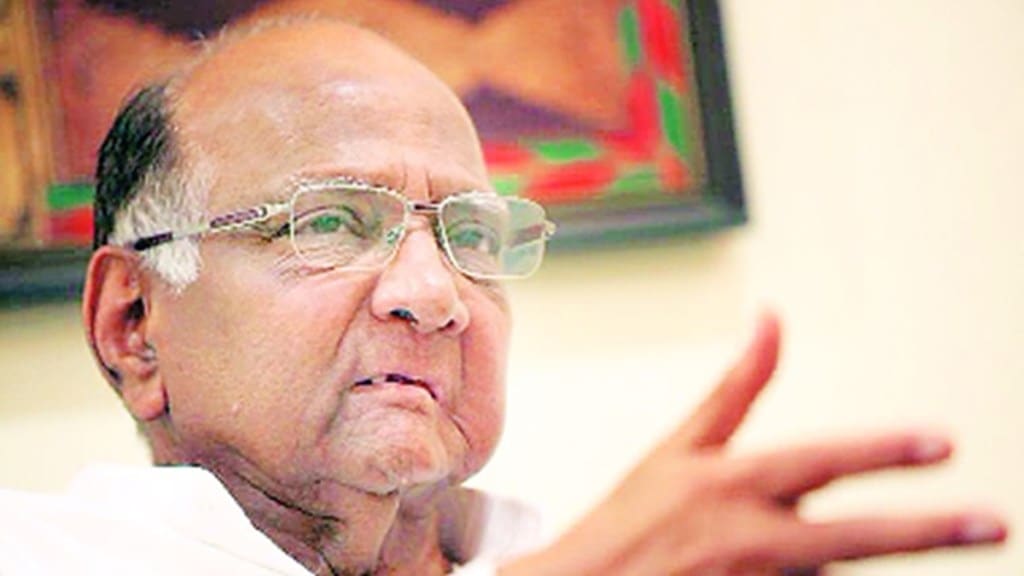The focus has returned to Maharashtra Assembly Speaker Rahul Narwekar after the Nationalist Congress Party led by Sharad Pawar on Sunday night filed a disqualification petition against the nine rebel party legislators, including Deputy Chief Minister Ajit Pawar, who took oath as ministers in the Eknath Shinde-led state government.
NCP state president Jayant Patil said the nine lawmakers were disqualified the moment they were sworn in as ministers in the BJP-Sena government, for “indulging in anti party activities”.
Patil also said that to prevent anyone from staking a claim on the party, the party has approached the Election Commission of India (ECI) informing the poll body that the nine MLAs have acted against NCP’s position, and that party workers from all districts stand firmly with Sharad Pawar.
Meanwhile, Maharashtra got a new Leader of Opposition in Jitendra Awhad, who replaced Ajit Pawar. With the monsoon session of the Assembly set to commence from July 17, Awhad was also appointed Chief Whip of the party.
SC unlocks disqualification proceedings
A Constitution bench led by Chief Justice of India (CJI) DY Chandrachud in the May 11 verdict relating to the political imbroglio in Maharashtra that arose as a result of party differences within the Shiv Sena, laid down principles for the Speaker of the Assembly to decide disqualification pleas and issues pertaining to appointment of leader of the Legislative Party and the Chief Whip.
The bench had said that the court cannot ordinarily adjudicate disqualification petitions under the Tenth Schedule (pertaining to defection) in the first instance, and handed over the baton of these disqualification petitions to the Speaker with rider that speaker “must decide the disqualification within reasonable period”.
This essentially means that the top court expects that the Speaker should decide upon the disqualifications as soon as possible and not take indefinite time.
The top court had added, “In arriving at their decision (in disqualification proceedings), the Speaker must consider the constitution of the party as well as any other rules and regulations which specify the structure of the leadership of the party,” as quoted by The Indian Express.
The SC had said that the defence of ‘split’ is no longer available to members facing disqualification proceedings. Speaker would prima facie determine who the political party is for deciding on disqualification when two or more factions claim to be that political party.
“This will obviate a situation where both factions attempt to amend the constitution to serve their own ends,” the SC had stated.
Not a game of numbers
The CJI-led bench had said the Speaker must not decide which group constitutes the political party on the “blind appreciation” of which faction had more MLAs in the Assembly. “This is not a game of numbers, but of something more. The structure of leadership outside the Legislative Assembly is a consideration which is relevant to the determination of this issue,” the court stressed.
However, in this case, Ajit Pawar on Monday said his party has written to Speaker, seeking the disqualification of Jayant Patil and Awhad belonging to the Sharad Pawar faction.
While Praful Patel, working president of the NCP, appointed Ajit Pawar as Legislative Party Leader, Anil Bhaidas Patil as its Chief Whip and Sunil Tatkare as party state president, Sharad Pawar has directed the removal of Patel and Tatkare from the membership of the party for indulging in “anti-party activities”.
Furthermore, both factions of NCP can take legal recourse by approaching the Supreme Court or competent High Court challenging the decision of the Speaker pertaining to disqualification proceedings.
Decision for disqualification pleas
In the Keisham Meghachandra Singh vs Speaker Manipur Legislative Assembly & Ors., the top court had said that the Speaker, in absence of exceptional circumstances, shall decide within a reasonable period of three months the disqualification petitions filed before him.
In the Shiv Sena case, the SC had said Speaker Narwekar must decide the disqualification petitions within “reasonable period.”
Who appoints the Whip, Leader of the party in the House
Further, the court declared that the Speaker’s decision to appoint a whip from the Eknath Shinde group was “contrary to law”.
It stated that the political party and NOT the legislature party appoints the Whip and the Leader of the party in the House.
The court was referring to the case of the then newly-elected Speaker Rahul Narwekar appointing Bharat Gogawale from the Shinde faction of the Shiv Sena as chief whip of the party instead of Uddhav Thackeray faction’s nominee.
A whip, the top court held, can only be nominated by the political party and not the legislative party (which comprises a party’s legislatives).
The SC said the contention that the legislature party and political party are inextricably intertwined was “erroneous” and the two could not be conflated. “To hold that it is the legislature party which appoints the Whip would be to sever the figurative umbilical cord which connects a member of the House to the political party.”
In the present case, as per the SC judgement, Speaker Narwekar, while deciding on disqualifications , will have to examine the response from Ajit Pawar-led faction, Constitution of NCP and ascertain who the “real” NCP is.
Moreover, before taking a decision as to who will be the leader of the NCP and Chief Whip, Narwekar, as a quasi judicial authority, would have to ascertain whether appointment of Awhad was made by the NCP “political party.”
NCP can also challenge in the constitutional courts the events of July 2 when the Governor administered the oaths of office to the nine ministers.

